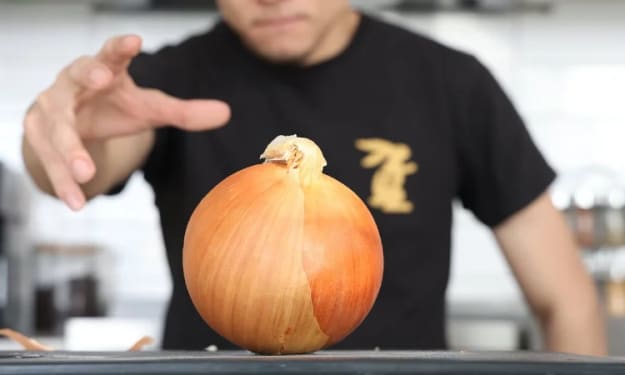Benefits of Botanical Medicine
A Brief Historical Coverage of the Definition and Use of Botanical Medicine

Botanical medicine is an alternative medicinal practice based on the use of plants or plant extracts. While some refer to botanical medicine as such, it is also referred to as herbal medicine or herbalism, and in some cases as a "natural dietary supplement." The use of botanical medicine(s) can be used as a primary (before disease or injury), secondary (reduce effects of disease or injury), or tertiary (lessens the impact of illness or injury) prevention-based care. The benefits of botanical medicine, despite its being considered an "alternative" medicinal practice, has been integrated into the lives of many cultures to ensure balance of the different dimensions of health. It has been proven to be beneficial for hundreds of years in different countries around the world. Despite there being a high skepticism towards the use of botanical medicine, it has continued to become increasingly popular in the United States.
Botanical medicine is no new method to civilization. The use of botanical remedies dates as far back as 1200BC, during the Shang Dynasty, and has continued to be used in Traditional Chinese culture ("History & Findings of Chinese Herbal Medicine"). There are many practices that have been developed in Chinese and Asian cultures. Herbal medicine has continued to be one of the most popular. Another medical practice called Ayurveda, developed in India, revolves around the use of herbs, which makes it quite similar to traditional Chinese medicine. The method Ayurveda was discovered in 400 AD and was eventually translated into Chinese around 700 AD, a time when Chinese scholars were studying medicine in India ("Ayurveda-History and Philosophy"). Yet another method of using things such as minerals, herbs, and other substances in diluted forms, is called Homeopathy. This was developed in the late 1700s by a German physician. Similar practices have been developed during ancient times in Egypt, the Middle East, Africa, along with Native Americans, and many others (Tilburt).
Over hundreds of years, people have applied the use of botanical medicine as a part of their lifestyle, to keep in balance the seven dimensions of health—those being: social, emotional, spiritual, environmental, occupational, intellectual, and physical wellness ("University of California, Riverside”). With each of these seven dimensions, as the body ages, some parts suffer great detriments. Speculating many culture’s religions, harmony is a quite common pertinence. Harmony affects the body, mind, and inner peace within oneself, along with that which is affected by others, which may involve dealing with people who are in an orbit of familiarity, friendship, a work environment, going to the store, or in one’s home. When referring to harmony, it has most relevance to spirituality. Harmony is finding an inner equilibrium of chaos and peace. For instance, when looking at the concept of Taijitu. Taijitu is more commonly known as the Yin and Yang; this is derived from the religion Taoism. Taijitu has two halves, Yin being the dark feminine side of chaos and negativity, whilst Yang is the light masculine side of peace and positivity (Kochmer). When one’s Taijitu is out of balance, the effect on the body and mind has the result of anxiety, depression, illness, and disease. The use of herbalism has been a method people have relied on for the rehabilitation and maintenance of that balance.
Herbalism can be of service to the body and mind. When consuming or applying a certain botanical(s) a person is able to rehabilitate in a healthy, natural, efficient way. For example, the common cold is one of the most generic occurrences during the spring and winter for people of all ages. While (severe) cold symptoms can keep someone from school or work for up to about ten days, a person may find themselves in a miserable state of lethargy for weeks, along with a dire wanting of a solution. Ginseng is a fleshy botanical that is a solution. The term ginseng comes from the Chinese term “Jen-Shen,” meaning “in the image of a man.” This name was given due to the appearance of its roots, because of the belief that the root would bond with the person who would consume it. How might it assist an illness, such as the common cold? Ginseng naturally lowers blood sugar and cholesterol levels, protects against stress, and enhances strength and promotes relaxation (“Ginseng”). With the benefits of ginseng, the person in a state of poor health can recover in a more timely, convenient manner.
While botanical medicines have been useful for hundreds of years, it’s important to come to know the risks that are associated with the substance that one is using. Despite their being all natural, one should not automatically deem them harmless. Whether someone is just beginning to use a botanical(s), or has been using them for years, recognizing that a botanical(s) does not only have the possibility of proving their benefits, but also has the same potential to prove unchanging or even detrimental to some individuals is important. There is still a risk there, so before beginning consumption or application of any botanical(s) it is important the user not only seek information about the botanical(s) they will be using but also inform a dietitian, physician, and if possible consult a herbalist.
As far as consulting a herbalist, they inform the user or potential user about the botanical(s) that will be in use, and how they can be applied or consumed, and they are able to tell a person the side effects that have been associated with the botanical(s), and after consulting with the herbalist about what the problem may be, they suggest what they believe will be most beneficial to the user or potential user. It’s important to consult with a dietitian because the botanical user is essentially changing their diet—that is if they are consuming the botanical and not applying it, and that leads to the physician. As far as telling a physician, it’s simply important for them to be informed, because if something has a negative effect on the user’s body, the physician may need that information to help improve the predicament and determine whether the issue has been caused by the botanical(s) in use.
There is high skepticism towards the use of botanical medicine due to the risk of possible improper use and the problems which may occur, but the use of botanical medicine has continued to be increasingly popular in the United States. The risks always vary depending on the: plant, root, flower, seed, and potency (strength) related to dosage. Proper preparation is a simple caution to be taken; same as one would with a pharmaceutical, or prescription drug. To help prevent some of these issues, “In 2007, the FDA issued Good Manufacturing Practices (GMPs) for dietary supplements, a set of requirements and expectations by which dietary supplements must be manufactured, prepared, and stored to ensure quality. Manufacturers are now expected to guarantee the identity, purity, strength, and composition of their dietary supplements” ("Background Information: Botanicals"). While safety has been an obvious concern for many, measures have been put in place to ensure quality and safety revolving around said botanical medicine. Even with the lack of those safety measures, the use of complementary and alternative medicine (especially botanical) has risen to affect about 42 percent of the United States population in one way or another, and has continued to grow (Breemen).
Despite certain dangers people may face with use, the growth of botanical medicines continues to rise in the United States. Despite its being an alternative medicinal practice, people use botanical medicines because they have been proven to be beneficial for a friend, a family member, considerably more personal compared to being present in different countries around the world. Different cultures built their modern medicine structure on a foundation of natural medicine founded hundreds of years ago. These fundamentals are continuing to be used today to ensure the balance of the many dimensions of health, to keep people as well as they can be for themselves, their family, and for their friends.
Citing Sources Page
"Ayurveda-History and Philosophy." Healthandhealingny.org. 2000 Center for Health and Healing, n.d. Web. 20 May 16.
"Background Information: Botanicals." Background Information: Botanical Dietary Supplements — Health Professional Fact Sheet. National Institutes of Health, 24 June 2011. Web. 27 May 2016.
Breemen, Richard B. Van, Harry H. S. Fong, and Norman R. Farnsworth. "The Role of Quality Assurance and Standardization in the Safety of Botanical Dietary Supplements." Chemical Research in Toxicology. U.S. National Library of Medicine, 27 Apr. 2007. Web. 27 May 2016
"Ginseng." Ginseng. Purdue Agriculture, n.d. Web. 18 May 2016.
"History & Findings of Chinese Herbal Medicine." Melbourne College of Professional Therapists "Excellence in Education" Melbourne College of Professional Therapists, n.d. Web. 20 May 2016.
Kochmer, Casey. "Personal Tao." Personal Tao. One River LLC, n.d. Web. 17 May 2016.
Tilburt, Jon C., and Ted J. Kaptchuk. "Herbal Medicine Research and Global Health: An Ethical Analysis." WHO. Bulletin of the World Health Organization, Aug. 2008. Web. 20 May 2016.
"The Shang People." Shen Nong. PacificLink IMedia Limited, n.d. Web. 17 May 2016.
"University of California, Riverside." Wellness: Seven Dimensions of Wellness. Ed. Julie Chobdee. Regents of the University of California, 7 July 2014. Web. 27 May 2016.
About the Creator
Adrianna Kjeld
Young ambitious writer.






Comments
There are no comments for this story
Be the first to respond and start the conversation.